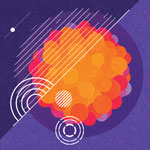In two recent editions of Molecular Psychiatry, Rusty Gage, first author Krishna Vadodaria and collaborators showed why selective serotonin reuptake inhibitors (SSRIs), a common treatment for major depressive disorder that increases the neurotransmitter serotonin, do not work in some patients. The discoveries could help lead to more personalized treatments for depression as well as other psychiatric conditions, such as bipolar disorder and schizophrenia. In the first study, published in January, the researchers created neurons from skin cells from patients whose depression did not show signs of improving with SSRIs. The team discovered that these patient-derived neurons became hyperactive when serotonin levels increased, compared with cells derived from healthy individuals or those who respond to SSRIs.
In March, a second paper by the group demonstrated that neurons from SSRI-resistant patients had longer neuron projections than did neurons from SSRI-responders, along with low levels of key genes involved in forming brain circuits.
Read January News ReleaseRead March News Release


























































